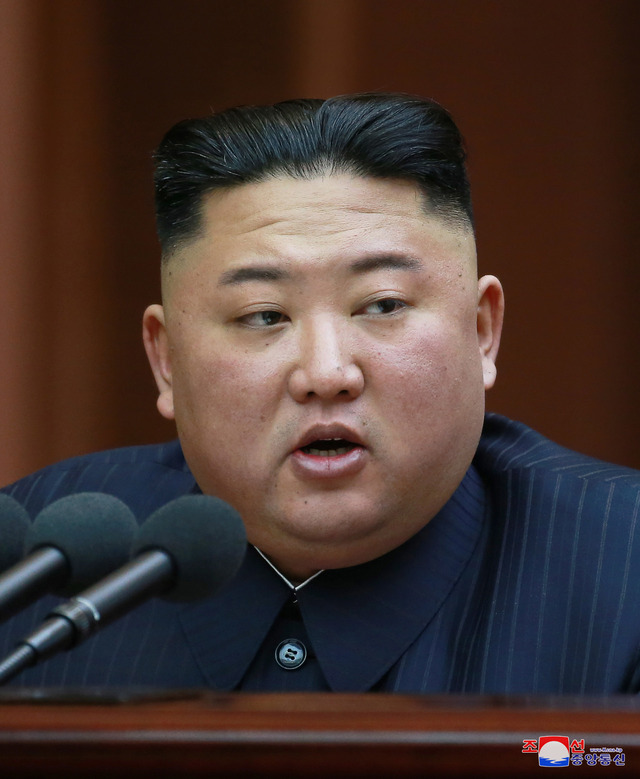Posted on : Apr.15,2019 17:32 KST
Modified on : Apr.15,2019 17:41 KST
 |
|
North Korean leader Kim Jong-un gives a policy address during the first meeting of the 14th Supreme People’s Assembly on Apr. 12. (Yonhap News)
|
During an address to the Supreme People’s Assembly on Apr. 12, North Korean leader Kim Jong-un announced his willingness to hold a third summit with the US. For his part, US President Donald Trump responded that “I agree [. . .] that a third Summit would be good.” It’s encouraging that the leaders of the two countries, who have been locked in a battle of nerves since their Hanoi summit ended without a deal, have created an opportunity to return to dialogue. We hope that this will serve as a fresh chance for both sides to seek a reasonable compromise that can make it possible to achieve the goal of denuclearization.
Luckily, the two sides managed to secure time for a peaceful compromise without provoking each other. Particularly encouraging was Kim’s message that he will maintain the “top-down” method for denuclearization, based on the trust between the two leaders, implied by his emphasis on his “excellent relationship” with Trump that came amid his criticism of American unilateralism at the Hanoi summit. Since Trump himself also offered a strong assessment of his relationship with Kim, the two leaders have effectively made it possible to move toward denuclearization through closed-door talks.
One of the more notable parts of Kim’s speech was his remark that the third summit could be held “on the condition that [the US] has the right attitude and seeks a solution that we can share” and that he would “wait patiently until the end of the year for the United States to make a bold decision.” Now that Kim has refused to accept a unilateral deal, such as the US’ demand at Hanoi that North Korea surrender completely, the US is now left to consider Kim’s proposal of a more reciprocal solution.
Under these circumstances, it’s of crucial importance that the two sides restore mutual confidence by taking more forward-looking measures. They need to engage in serious negotiations to find a compromise that will be acceptable to both sides, the US recognizing that it cannot bring North Korea to its knees through unilateral demands, and North Korea recognizing that the mere willingness to denuclearize is not enough to extract concessions from the US. Such a compromise may lie somewhere between the step-by-step and simultaneous approach that North Korea proposed at Hanoi, which would begin with swapping the shutdown of the Yongbyon nuclear complex for the lifting of economic sanctions that affect the North Korean public, and the “various smaller deals” that Trump mentioned during the South Korea-US summit on Apr. 12.
South Korean President Moon Jae-in, whose summit with Trump created the impetus for resuming North Korea-US dialogue and organizing another inter-Korean summit, has an even more important role to play now. We are watching keenly to see whether Moon will express an official position about the option of sending a special envoy to the North on Apr. 15. We hope that the special envoy will lead to another breakthrough on the road toward denuclearization.
Please direct comments or questions to [english@hani.co.kr]






